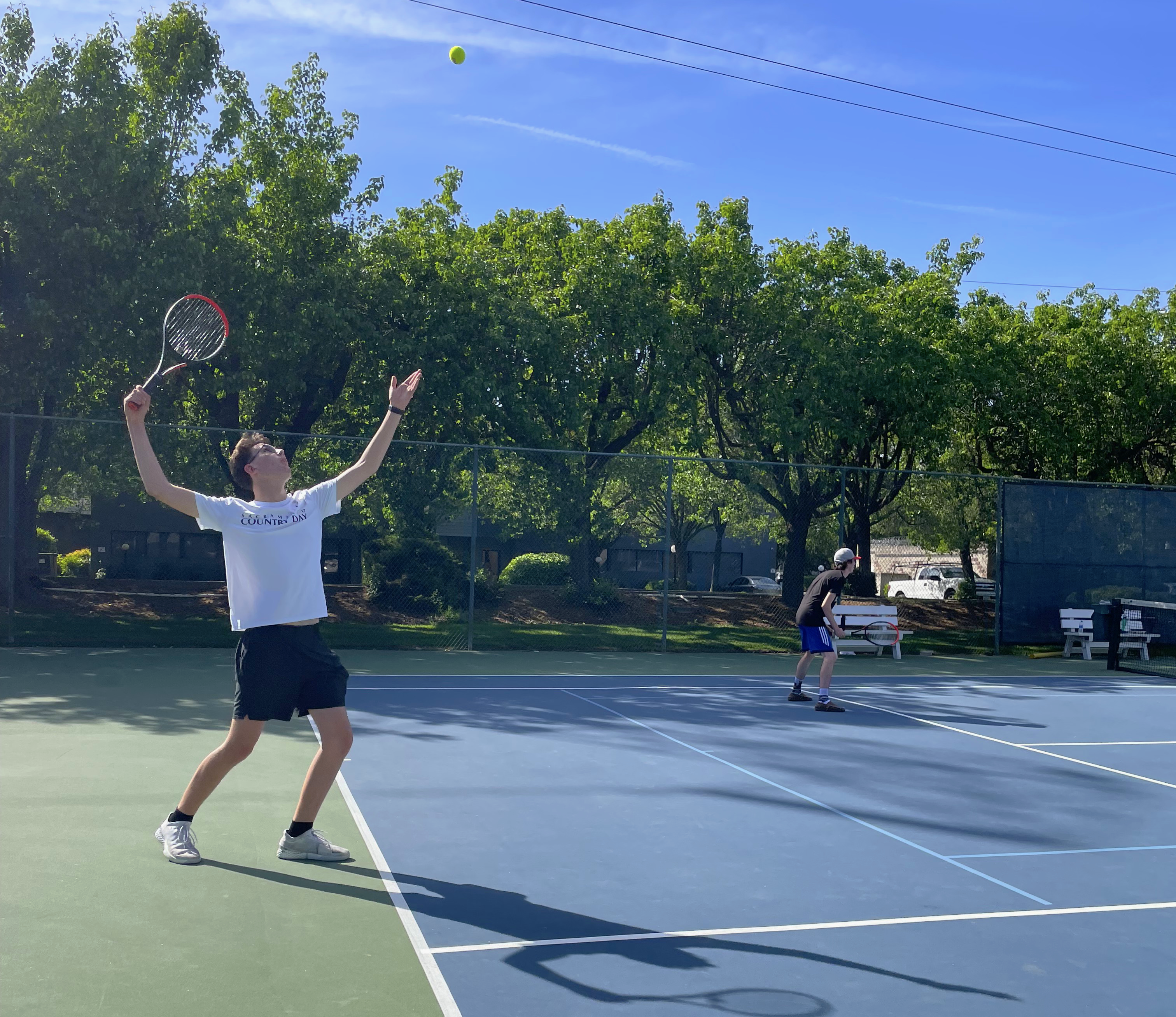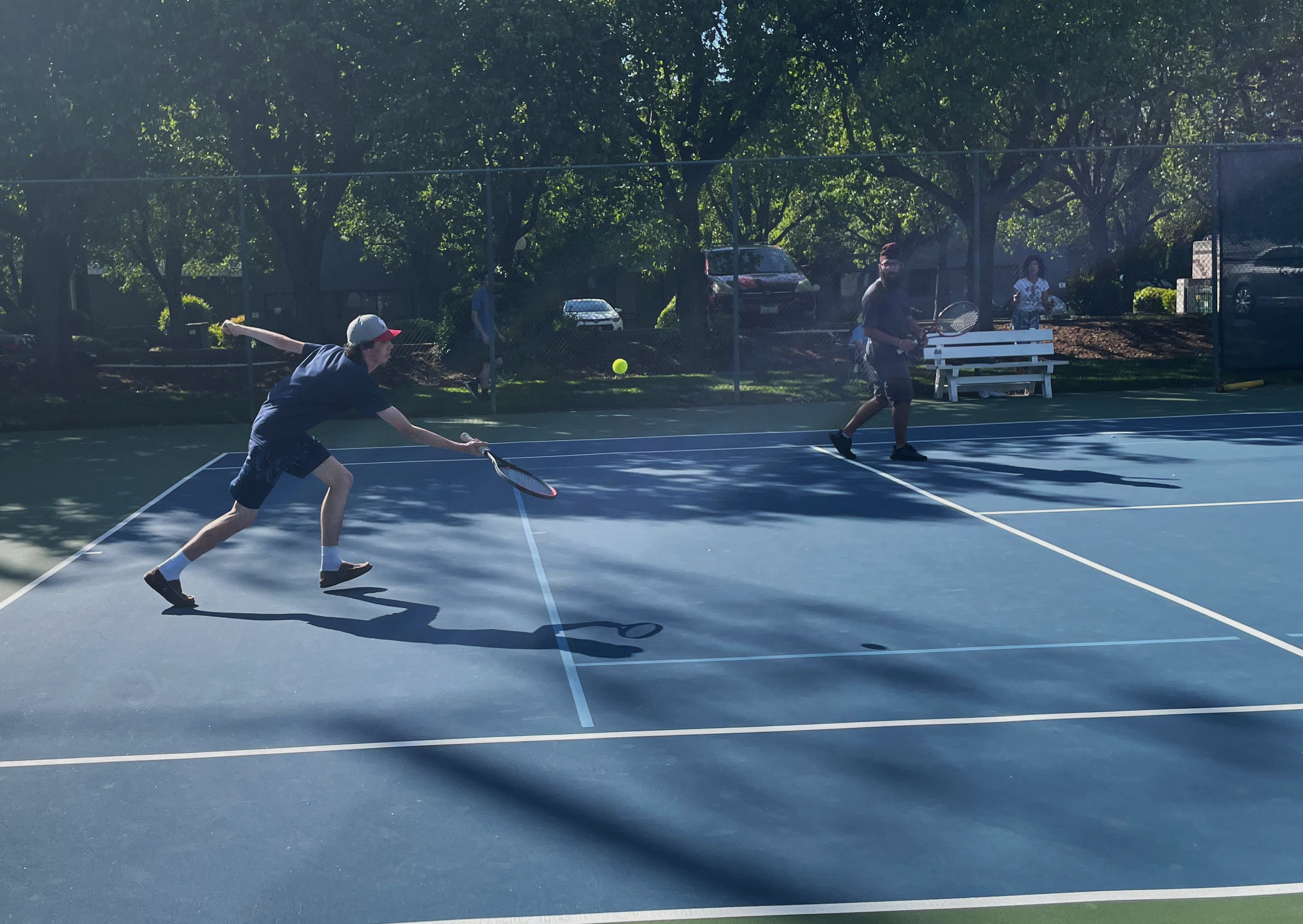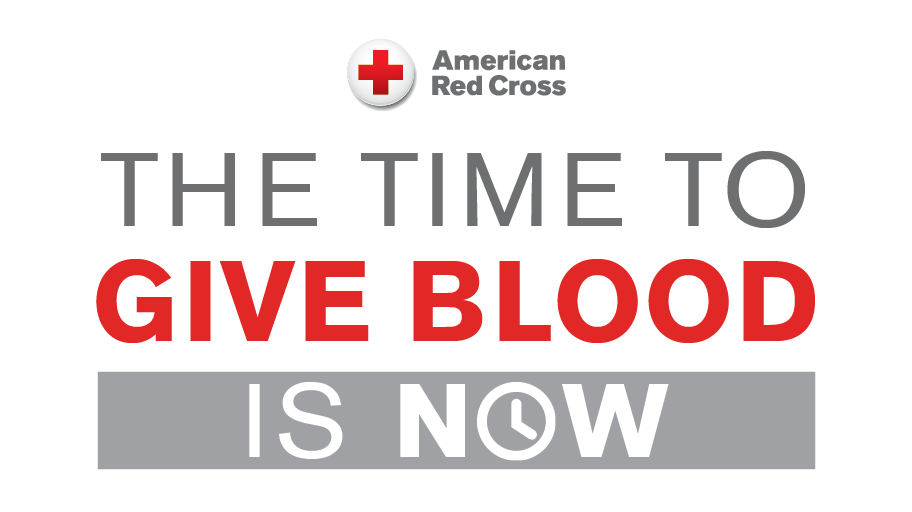Donald James, a Country Day alumnus and the school’s first Black graduate, has learned that the most important factor for a successful career, a job interview or a simple conversation is a person’s manners.
James spoke about what he learned during his 35 years at the National Aeronautics and Space Administration (NASA) in a Zoom event on Fed. 25. The event, Country Day Conversations with Donald James, was hosted by the Advancement Director, Rachelle Doyle and the Black Student Union.
The main topic of the discussion was James’ book, “Manners Will Take You Where Brains and Money Won’t.” The book is about his career at NASA and life lessons from his mother.
At NASA, James was responsible for advancing and using NASA’s Education program for strengthening student involvement about its scientific goals.
He led the agency in inspiring interests in science, technology, engineering and mathematics in NASA’s workforce, facilities, research and innovations.
“I know very, very capable smart NASA people who flamed out. The problem wasn’t that they made a bad decision, wrong answer or they calculated a problem wrong. It was their manners,” James said.
As the event began, participants at the event were asked to fill out a poll with a single question: Is it more important to be right or successful? The majority of answers were “successful.”
Freshman Imani Cochran, a member of the BSU, attended the event and sided with the majority.
“Even if you think you are right all the time; you’re not. Even if somebody else is wrong and they are not cooperating, then just don’t work with them. Don’t push the conflict to prove you’re right,” Cochran said.
James said he liked to ask that question because it was an icebreaker to get his audience to think about manners differently.
“I fall down on the side of success, but it’s one of those questions that depends. It’s designed to not necessarily have a right or wrong answer,” he said.
“Sometimes people are really committed to finding the right answer –– it doesn’t matter what it is, whether it is a problem or a theory –– that they sometimes lose sight of a bigger point.”
James said that when discussions get heated, voices get raised and it becomes personal.
“Would you rather be right about this or would you rather be successful? Do you want to prove that you’re right because you want to have your ego massaged? A lot of people who do that don’t have many friends,” he said.
His primary example was of a man who was so determined to be right that he lost sight of his relationships and his job.
James said that at some point the conversation transformed from being correct to being successful in sparing your relationship with the other side of the discussion.
The second poll that was shared in the meeting asked what the most important part of manners was.
The majority of answers were body language. James said studies have shown that body language was as important if not more important than the words you choose to speak.
“The reason that I bring up the importance of body language, in the context of manners, whether you’re talking to your teachers or going for a job interview, is that people will draw conclusions from your body language,” he said.
After years at NASA, James discovered what he believes to be the most important part of manners.
“The ability to be present and authentic; and those are difficult concepts. To be present really means a way of understanding the people you’re with in a way that is not superficial.”
Doyle said the most important part of manners was shared humanity.
“You recognize everybody on the planet is your brother and sister in some way, and your responsibility is to care for one another,” she said.
After the second poll in the meeting, the audience was divided into breakout rooms to discuss the question of whether good or bad manners stand out more.
Senior Allie Bogetich, said that she believed good manners stood out more than bad.
“There are people who see someone in a service position and see them as lower than them, status-wise. People who come into a restaurant and treat them as anyone else, I really appreciate those people,” Bogetich said.
Cochran said that bad manners stood out to her more because it told her who not to talk with or to continue talking with.
Bogetich’s break-out room also discussed manners on the internet.
Bogetich said that on the internet the problem wasn’t bad manners, but people being rude and misunderstanding each other.
“I think fights — obviously, they start because of different opinions –– start because there is no tone and there is no way to symbolize with what you’re saying,” Bogetich said.
When Doyle ended the break-out rooms, students asked James questions.
Cochran asked him what pushed him to succeed besides his grades.
James told her that he didn’t want to end up where he didn’t want to be because of his grades.
“He knew where he wanted to be and that’s what pushed him,” she said.
Cochran said the event was very motivational and gave her a lot of good advice.
“I loved it,” she said. “School is going good, but his experience pushed me to do better. Success isn’t about how smart you are but how hard you work.”
— By Ishaan Sekhon




